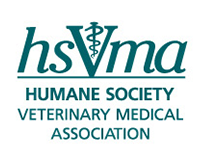Inadequate Oversight and Antiquated Laws in Puppy MillsBy Lisa Hindle Deppe, DVM June 4, 2010  Dr. Deppe with a rescued puppy mill dog. Dr. Lisa Hindle Deppe Most commercial breeders follow their own vaccine protocols and deworming regimens. In Iowa, dogs that are caged in a kennel for life are not required to have a rabies vaccine since they are not considered at risk of exposure to rabies. Since rabies is the only vaccine that requires administration by a veterinarian, kennel owners seeking to reduce overhead operate under the supposition that there is no need for dogs in these facilities to be seen by a veterinarian for routine exams, unless the owner of the facility chooses to do so. In doing research on the dogs that we have taken into our rescue group, I have personally discovered that "surprise" inspections of these facilities conducted by the USDA and other licensing organizations are routinely conducted at the same time of year, often within days of the previous year's inspection. This consistency makes the "surprise" inspection much less of a surprise, and provides opportunity for the kennel owner to prepare, conducting annual grooming and cleaning practices prior to the expected inspection. For two years, I was active and vocal in my support of Iowa legislation, known as the Puppy Mill Bill, that would allow state licensed inspectors into federally licensed commercial breeding facilities. Prior to its passage, only a USDA/Federal inspector was allowed to inspect USDA licensed breeding facilities in Iowa. If a complaint was made about a USDA facility, state licensed inspectors and law enforcement were not allowed in the facility. The Puppy Mill Bill passed, and will now make it possible for a state licensed inspector to enter the facilities if a complaint is reported. I was surprised to find that state veterinary organizations would not support the bill, but instead chose to take a politically correct stance alongside other legislative agencies and livestock organizations that stood neutral or against the bill. Livestock groups were against the bill, as many commercial dog breeders are also livestock producers and fear that regulation of dog breeding may lead to radical new legislation regarding their livestock. State licensing agencies refused to support the bill due to the perceived expense associated with enforcing the bill and chose to remain neutral instead. The Animal Welfare Act (AWA) was passed in 1966 to protect certain types of commercially-raised animals from inhumane treatment and neglect. It has remained virtually unchanged in regards to the standard housing requirements for dogs in commercial breeding establishments. According to the AWA, a dog is required to have a cage only 6 inches longer, wider, and taller than the dog to live its whole life in. Hold a book 3 inches from your nose. Imagine living in a room that allowed you only 3 inches on each side of your body to move, live, breed, and exercise. Also within the AWA, there is no provision for solid surface resting areas within the cage; wire flooring is legally sufficient. There is no prohibition on cage stacking, which leads to overcrowding and poor sanitation. There is no limit on the number of times a dog may be bred, regardless of its effect on her overall health. And there is no mandatory exercise requirement for the dogs in commercial breeding facilities, as long as a certain amount of extra cage space is provided; the dogs can legally be kept in small cages for their entire lives. Due to the limited reach of the AWA and the fact that it only regulates commercial dog breeders who sell wholesale (such as to pet stores), more and more states are enacting local laws to crack down on puppy mills. Last year ten states passed laws to better regulate puppy mills, and this year Iowa and several other states are joining the list. It is vital for veterinarians to remember our code of ethics and become part of this change. The Humane Society of the United States has more information on efforts to regulate puppy mills. Veterinarians in Missouri can go to missourifordogs.com for information on a ballot initiative that will improve the lives of dogs in commercial breeding operations in that state. This information is adapted from Dr. Lisa Hindle Deppe's presentation "A Veterinarian's Experience with Iowa's Puppy Mill Dogs," as given to the Care of Animals in Commercial Enterprises Legislative Study Committee on September 29, 2009 in support of the proposed Puppy Mill Bill, which recently became law in Iowa. |
